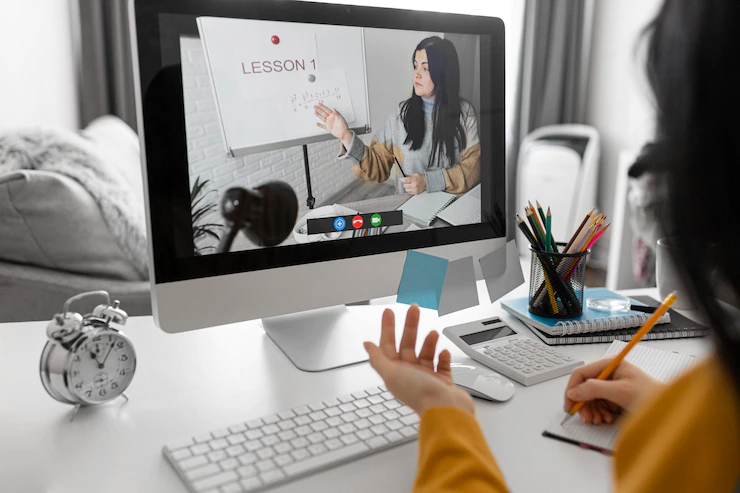
Healthcare is changing. Not only is the technology itself advancing, but the arrival of 5G and other secure networking systems has also meant that even the most remote areas of the country are now connected. These factors are forging the way for a decentralized healthcare system through telehealth.
Even without telehealth, however, the healthcare industry is struggling. The demand for health services is higher than ever, there are more people than others, pollution, and other environmental disasters are causing surges of health concerns, and above it all, there’s a shortage of nurses and physicians.
This shortage is one of the most difficult challenges facing the healthcare industry today. While automation and Telehealth monitoring can do a lot to help offset the sheer number of people needed to keep track of everyone’s health or otherwise, that doesn’t change the fact that over 1 million RNs are expected to retire by the end of the decade, just when healthcare is set to expand.
The biggest hiccup isn’t in getting people interested in becoming nurses. No, the issue is instead the lack of educators available to get the job done. That’s why those who are in the latter half of their career, particularly those who were considering leaving nursing entirely for one reason or another, should consider transitioning their career into education.
Working as a nurse educator fetches great benefits, and an excellent work/life balance, and is a great way to utilize your nursing experience in an important new way. You’ll be leaving behind a legacy, helping patients on a larger scale, and playing a critical role in shaping the future of healthcare nurses. It’s a big job, and unfortunately, you can’t just step into the role, no matter how senior your current position may be.
Earning the Doctorate: Your Options

Technically speaking, you should have three doctoral options as a nurse. The first is the Doctorate of Nursing Practice, which is the hands-on leadership doctorate that those considering leading a team, department, hospital, or even their own clinic may want to consider. Due to its focus, however, the DNP is not all that helpful for those who want to transition their careers into nursing education.
Instead, you’ll want to look into either the Ed.D or earn a Ph.D. The first is a focussed educational doctorate perfect for those who want to focus their efforts on teaching the next generation, while the Ph.D. is a research doctorate. Both are decent options, but by far the faster of the two is the Ed.D. Earning a Ph.D. takes a lot of time and effort, as you aren’t just learning how to teach and research, you’re investigating your own project that will then need to be defended against a panel of experts.
The Ed.D is far more straightforward and streamlined, making it the preferred option for nurses looking to work in higher education. The best news for those who are still working and need that income, or the employment record, is that you don’t need to stop working to complete it, either. The Ed.D is a two-year, part-time program designed for working professionals.
Everything You Need to Know About the Ed.D

The educational doctorate is a new program that’s designed to prepare specialists from many different backgrounds to teach in an academic setting. As it’s a relatively new degree, not many people know that much about it.
An important thing to keep in mind is that your degree is going to be dependent on your goals. As a nurse, you’ll want to go for the healthcare track. If you were academic in any other field you’re go-to would be the higher education track, and if you wanted to become a teacher, you’d want to take the K-12 track.
The Ed.D is just one of the many quality Rockhurst University online programs. Unlike other providers, they are CCNE accredited and have a robust staff of nursing educators. It is traits like these that make the healthcare Ed.D stand out.
1. What Do You Learn?
In the healthcare Ed.D track you learn key teaching methods designed for the healthcare field. You’ll learn all about policy, ethics, and legal frameworks that are essential to keep in mind when educating the next generation. Furthermore, you’ll also be trained in how to use technology, which is essential considering the rise of online education.
You’ll also be trained in how to effectively lead, design a curriculum, and create assessment methods. In short, you’ll learn everything you need to take your nursing experience to train the next generation of nurses.
2. How Long Does It Take?
While there are full-time programs that take less time overall to complete, these don’t let you continue to work, earn money, and support yourself. Like with most working professionals of today, it’s okay to not want to take time off from your career to go back into education.
Thanks to online degrees, you don’t have to. An online Ed.D that’s designed to be completed on a part-time basis takes just two years to complete. Use that time to start expanding your network and letting those with the power to help you get your first job know of your plans and your efforts.
3. What Resources Do You Have?
You will be given many digital tools to help facilitate your online education. This includes multiple learning tools, from video to online documents. You’ll also have access to your educators either through email, chat, or video. While you don’t have to attend live discussions, it’s recommended that you do, so that you can ask questions directly and promptly, and your peers can also learn along with you.
4. What are the Program Outcomes?
An Ed.D in healthcare is designed to prepare students for a career either as a faculty member or as an administrator. All options will help support students and address the educator shortage in nursing universities.
Everything You Need to Learn About Successfully Completing an Online Degree

While you’re given a lot of resources to help you complete the degree in question, keep in mind that there is a lot you will be solely responsible for. While maintaining a good schedule, getting your work in, and attending your classes are the responsibility of on-campus students, the framework and expectations are different. It’s easy to let yourself fall behind when you don’t have physical reminders right in front of you.
If you haven’t yet completed an online degree, it can be jarring. You’ll want to use these tips to help you acclimate to the differences so that you can successfully learn and complete your degree on time and do well.
1. Take Note of All Your Available Resources
Each university will have its own set of resources. There will be the standard offerings now available to online students, like an email, the online platform, and access to digital learning tools. You should also have a student success coach or advisor, a careers service, and more. In many cases, you may have the same resources as on-campus students. Library services are accessible online, and you’d be surprised at how helpful the library staff can be if you need pages uploaded from a physical book.
If you weren’t aware of what’s available to you, then you cannot max out your experience. Read through carefully and ask questions. Sometimes you can miss something that should have been obvious, and other times accommodation can be made just for you, depending on your circumstances.
2. Create (and Stick) to Your New Routine
When you take on an online degree that lets you do things like watch the discussions after they’ve occurred, there is a risk of falling behind. If you want to get the most out of your experience and save, since you’ll graduate on time, you’ll need a robust routine.
When it comes to creating your routine, start with your health. You need to eat properly on a set schedule and get consistent, deep nights of sleep. If you don’t already have this down, it’s time to make changes. Keeping to a consistent routine can help get your body used to your schedule, so you’ll feel tired before bed and even be able to wake up naturally on time. As for your diet, try to fill it up with foods full of vitamins and nutrients. Your brain is going to be doing a lot of work, and it needs the fuel to do it.
When it comes to your actual study schedule, try to break it up throughout the day so not one block feels daunting. Prioritize live discussions and any live chats, and then work out the rest, so that your degree can fit nicely with your routine.
3. Revise During Dead Times of the Day
Have information you need to revise and remember? First, create notes. You’ll rewrite these notes a few times, with less information on the page or in the voice note at a time. In the beginning, have a full explanation for each concept, so that you can remember the right information. Use dead times of the day, like when you’re on your commute, doing chores, or even waiting for your doctor’s appointment to revise.
If you find yourself summarizing information and skimming through the page, rewrite the notes with just the most important jot notes. This way, you can remind yourself of information without reading or listening through the whole list.
4. Understand How You Learn and Memorize the Best
We all learn differently. Taking notes is important, not just because writing down the information is a good way to keep it in mind. Take notes, and most importantly, write down explanations that make the most sense to you. This way, you can remember it the way your brain understands it, rather than try to remember someone else’s explanation.
You can also use many different memory tricks to make it easier to learn and remember information. Visual learners can use color coding to differentiate information. Learners who learn best by hearing can create voice notes. Those who prefer to learn while doing can either practice or have a fidget toy in their hands while they’re reading or watching to help them pay attention.
5. How to Take Breaks
While taking a break may seem straightforward, many people don’t use break time properly. If you spend your time off just scrolling online, without doing much else, you’re not using your break well. The way to get the most benefits out of a break period is to refresh your health. To do this, drink a glass of water or fresh juice. Have a healthy, energy-powering snack. You should also get up, do some stretches, and get your body moving.
All of this can help you feel better by the time you sit down. If you have time after that, then you can browse online. During larger breaks, however, you’ll want to leave your desk entirely. Go for a walk or have a chat with your friends, family or coworkers.
A Few Additional Tips to Help You with Your Career

As with all careers, it isn’t just about what you can do but also about what you know. That’s why it’s important to start working on your network. Networking in today’s age is a mix of online and in-person opportunities. Online, you can get in touch with nurse educators that you admire to ask for advice and help in making it to where they are. You can also use an online platform to teach others key healthcare facts (within legal restraints) so that you can showcase your ability to teach and communicate.
As for in-person, go to events. Many universities host free talks and lectures that you can go to. You don’t even need to be a student, so if there’s a local institution near you and it’s hosting an event you’re interested in, go. There are usually meet-and-greets later. Other in-person opportunities include workshops, conferences, and shorter training opportunities.
You’ll also have your careers service and your university’s alumni network. Use both to help you get started in new and exciting career opportunities and remember to pay it back to other potential nurse educators in the future.
Additional:




























